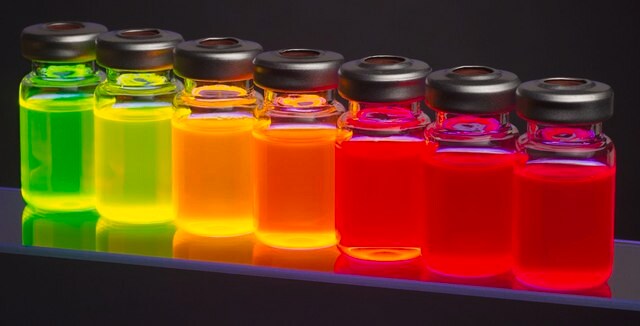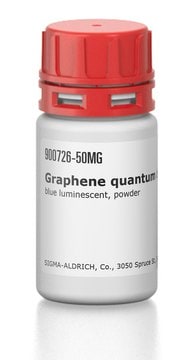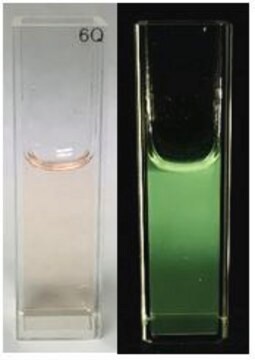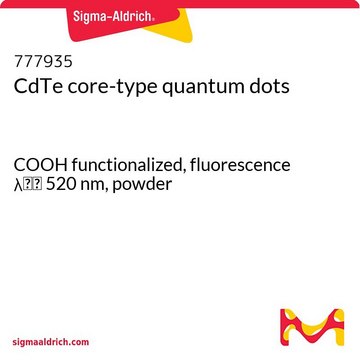推荐产品
一般說明
Reactive group: Carboxylic acid.
應用
The organic layer of the CdS/ZnS or CdSe/ZnS quantum dots (QDs) with carboxylic acid as reactive group consist of a monolayer of oleic acid/octadecylamine and a monolayer of amphiphilic polymer. The total thickness of organic layers on these QDs is approximately 4 nm. They find many applications in bioimaging and biosensing.
法律資訊
Product of Ocean Nanotech, LLC.
危險聲明
危險分類
Aquatic Chronic 2
儲存類別代碼
12 - Non Combustible Liquids
水污染物質分類(WGK)
WGK 3
閃點(°F)
Not applicable
閃點(°C)
Not applicable
Qingjiang Sun et al.
ACS nano, 3(3), 737-743 (2009-03-25)
Owing to their narrow bright emission band, broad size-tunable emission wavelength, superior photostability, and excellent flexible-substrate compatibility, light-emitting diodes based on quantum dots (QD-LEDs) are currently under intensive research and development for multiple consumer applications including flat-panel displays and flat
Bright, multicoloured light-emitting diodes based on quantum dots.
Sun Q, et al.
Nature Photonics, 1, 717-722 (2007)
Zhanao Tan et al.
Nano letters, 7(12), 3803-3807 (2007-11-03)
We report a multilayer solution-processed blue light-emitting diode based on colloidal core/shell CdS/ZnS nanocrystal quantum dots (QDs). At a low-operating voltage of 5.5 V, the device emits spectrally pure blue radiation at 460 nm with a narrow full-width-at-half-maximum bandwidth of
商品
Dr. Delehanty and researcher introduce recent advances in the use of cadmium-free quantum dots for bioimaging. Focus is placed on strategies that have emerged in the last five years for design, synthesis, and surface modifications of non-Cd quantum dots (QDs) for bioimaging and sensing applications.
我们的科学家团队拥有各种研究领域经验,包括生命科学、材料科学、化学合成、色谱、分析及许多其他领域.
联系技术服务部门








